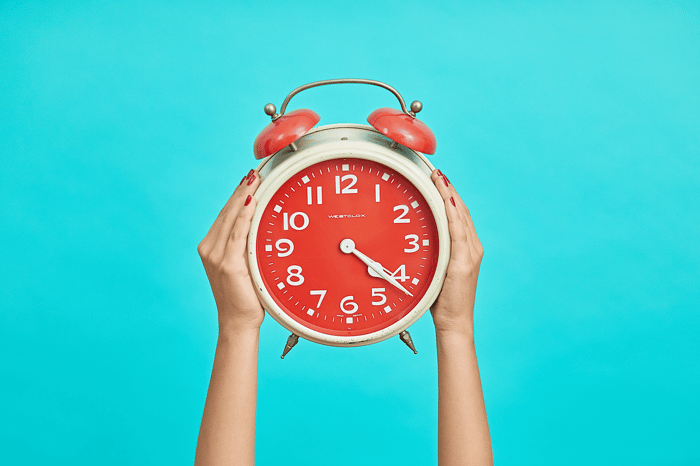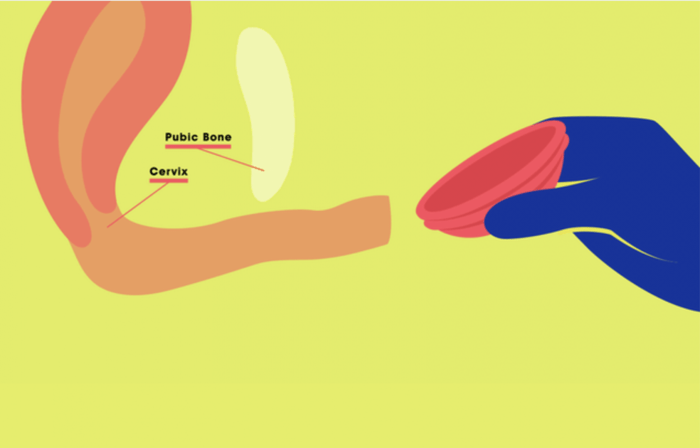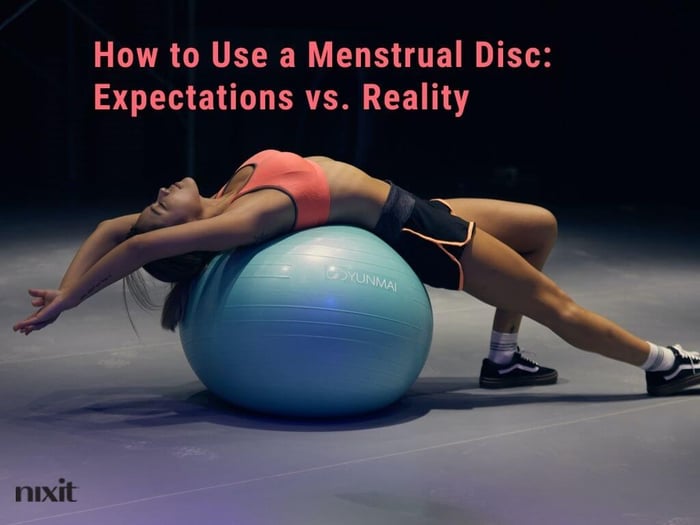When first learning about periods, you might have been told that it is something that happens once every month.
Most people grow up with the idea that a healthy menstrual cycle should last exactly 30 days, such that if their first period arrives on a particular date, it will continue to do so on the same date every month until the end of time.

But that is simply not true.
There’s a lot of nuance involved in a period’s cycle, with a number of factors influencing how long or short it can be. Understanding this is what we’re diving into today. Let’s go!
How long should your menstrual cycle be?
Let’s start with the most straightforward framework. While the average is about 28 days, menstrual cycles between 21 and 40 days are considered normal.
Surprised? It’s important to remember that there’s never just one solution. Everybody is built differently with varying genes, environmental factors and habits that influence their body’s behaviors. There are a number of reasons why cycles can vary in length, and we’ll get to that in a bit, but first let’s focus on what your cycle length is.
How do you calculate your menstrual cycle length?
Alright, so we have the figure: between 21 and 40. But we do need to figure out what the start and end of your cycle actually is. What counts as the first day, and what’s the last?
Well, periods are usually calculated from the first day of one period to the day before your next period.
That means, if you get your period on May 4 and you get the next one on June 7 you’d count the days from May 4 to June 6!

In this case, it would be 34 days.
It can be super helpful to note down your period dates. Not only can it help track your cycle and gain a better understanding of what you should expect, it can also be a big indicator to your body’s overall wellbeing.
Don’t worry, though. You don’t have to scribble on your calendar – there are a bunch of apps that you can use to help track your cycle. Take a look at this list that breaks down a bunch of them.
You’ll find that some of these apps even track other symptoms and habits. Here are a few things you could consider tracking:
- Period start and end date: this consists of the days you actually bleed. How many days does your period typically last for? Do you find that it changes in frequency
- Flow: does your flow tend to be heavy or light? How often do you have to change your pad or tampon, or empty your cup? Do you see clots frequently?
- Pain: make a note of the pain you feel in the build up and during your period. You could note the type of pain, where you feel it and the intensity of it.
- Abnormal bleeding: are there times that you see blood in between periods (when you usually don’t)? Did your period last for much longer one particular time? It’s important to remember what’s normal or abnormal for you.
- Food, travel and activity: do certain foods intensify or ease your cramps? Does exercising relieve some symptoms or does it make you feel worse?
- Other symptoms: do you experience mood changes? Behavioral differences? Do you find yourself prone to headaches, acne or other symptoms? What kind of bodily symptoms do you notice outside of bleeding? What does PMS usually look like for you? Make a note of the symptoms you notice through the month.
Keeping track of this information could eventually lead to better date predictions as well. They also help you get to know your body much better, and become mindful of the processes that take place.
Do you notice you need more carbohydrates around your period? That may be your body telling you it needs fuel. Notice that exercise increases the intensity of your symptoms? Listen to that and give your body the rest it’s asking for!
Paying close attention to what your body craves and how it reacts to different stimuli can help better your experience with each subsequent period!
What are the phases of a menstrual cycle?
A month might not seem like much, but there’s actually a whole lot of activity that happens in the body during that time. Between the start and end of your cycle, there are several complex processes that take place which eventually result in your period.
These are divided into four phases - menstruation, the follicular phase, the ovulation phase and the luteal phase.
Let’s break these down.
Menstruation is when the thickened lining of the uterus (or endometrium) is eliminated from the body, through the vagina. This is what we refer to as our period.
The follicular phase starts on the first day of your period, and ends with ovulation. This is when the “follicle stimulating hormone” (FSH) is released in the body, stimulating the ovaries to produce follicles. One of these is what will eventually mature into an egg, and the entire follicular phase stimulates the uterine lining to thicken. On average, this occurs around day 10 (in a 28-day cycle).
Then, ovulation. This is when the mature egg is released from the surface of the ovary. This occurs mid-cycle – usually about two weeks before menstruation begins again. It’s at this mid-cycle phase that estrogen and testosterone levels are at their peak, sometimes causing a high sex drive and greater energy levels!
After this, the luteal Phase. This is when progesterone and small amounts of oestrogen are released, maintaining the thick lining of the uterus in anticipation of a fertilized egg. If the fertilized egg implants itself, it then goes on to produce other hormones necessary to maintain the uterine lining. If the fertilized egg doesn’t implant itself and no pregnancy occurs, the ovary stops producing progesterone, thereby letting the lining of the uterus fall away.
Quite a lot to it, eh?
What makes a menstrual cycle longer?
Now we know what range “normal” cycles fall into, and all of the phases that lead up to menstruation. But what if your menstrual cycle is longer? What if it takes over 40 days between periods?
Well, there are a number of reasons why you might have longer cycles, or even missed periods.
1. Pregnancy
Let's get the most obvious one out of the way. The leading cause of missed periods is pregnancy. Keeping track of your period can help with this, whether you want to get pregnant or not. Many of the tracking apps we listed above also tell you when your peak ovulation is, and when you have the highest chance of getting pregnant.
2. Puberty or Menopause
If you’re young and have recently got your first period, awesome! Welcome to the club. You don’t need to worry about frequency for a while - your body is going through a bunch of changes, and it’s likely that a few months may pass without a second and third period showing up. The same goes for menopause – when your period stops completely.
There is a transition period called “perimenopause” where your body moves from being in a reproductive age, to a non-reproductive age. During this time, you may experience changes in your period. Flows being lighter, heavier, less or more frequent, and so on.
3. Illness
If you find that you’re missing periods, it could be due to some underlying conditions. Polycystic ovary syndrome (PCOS) is a big cause of missed periods. There’s also thyroid disease, ovarian cysts, diabetes, liver dysfunction, pituitary tumors and diseases of the adrenal gland that could contribute to missed periods. But before jumping to conclusions, it’s best to see your doctor to rule out other, more likely reasons.
4. Medications
Antidepressants, thyroid medications, anticonvulsants, antipsychotics, and chemotherapy medications may cause missed or delayed periods. Other medicines that affect hormones could also cause changes in your periods, including certain types of birth control.
5. Weight changes & intense exercise
If you’re over or under the ideal weight range for your body type, you might experience changes to your period cycle. Drastic increases or reductions in weight could cause changes in your cycle as well. Similarly, intense exercise may cause cycle changes–exercise causes changes in hormones, namely your pituitary and thyroid hormones, which have a direct impact on your ovulation.
Having a healthy menstrual cycle is important for the overall health of your body–missed periods are linked to low bone mass, type 2 diabetes, and even heart disease and strokes. While we’ve covered the most common reasons for missed periods and late cycles, there may be more. We recommend that you visit your doctor and get a diagnosis if if you’re missing periods.
What makes a menstrual cycle shorter?
Alright, so we understand what goes into missed periods or longer cycles. But what if you get your period twice in a month, or if your cycle seems to be getting shorter than 21 days?
Here’s the thing. Much like longer cycles, early and unexpected periods are often the result of hormonal changes, especially during puberty and at the beginnings of menopause. They could also be caused by underlying conditions such as PCOS (the culprit for many things, unfortunately!) or endometriosis.
If you track your cycle and find that its usual length tends to be around 21 days, it’s possible for you to get your period at the start and end of a single month. If this is the case, it need not be a reason to worry.
Apart from this, there are a host of reasons that can cause shorter cycles or early periods. And so many of these overlap with those that cause longer cycles.
Here’s the gist:
- Puberty or Perimenopause
Much like with longer cycles, puberty and menopause might cause shortened or quicker cycles. If you’re on either end of this spectrum, there’s little reason for concern. - Intensive exercise and/or fluctuations in weight
Low weight, excessive exercising, eating disorders, and stress may also impact the duration and frequency of your menstrual periods. - Emergency Contraception
Getting your period very soon after taking the morning-after pill is a common side effect. It’s a sign that you’re not pregnant, however it is not recommended to take the pill frequently. Read more about this here. - Sexually transmitted infections
These include chlamydia, gonorrhoea, syphilis among others, and can cause bleeding or spotting in between periods. They may also come with other symptoms such as discharge, the frequent urge to pee, and pain during sex. Read more about STIs here . - PCOS
We mentioned polycystic ovary syndrome earlier as well, only because it’s super common. Studies say that about 1 in 10 menstruators may be affected by it. While the cause is not entirely known, it is influenced by hormonal imbalances.
Some of the symptoms for PCOS include acne, oily skin, excess facial hair growth, and obesity. If you think you might have PCOS, we recommend you visit a doctor. They will conduct a few exams and be able to help you out with next steps. - And finally, stress.
This is something that isn’t nearly talked about enough, but stress can have a big impact on your hormones. If you’re leading a life of high stress, it may cause hormonal imbalances that throw your cycle around a bit. Here’s an article all about it.
When should you see your healthcare provider about your menstrual cycle length?
Alright! We’ve covered quite a lot, and we hope this information and resources have been useful and answered some of your questions. You may be wondering when to be worried about your period cycle length, and what warrants a trip to the doctor.
First off, if you’re trying to get pregnant and have irregular periods, you might need to consult a doctor before or while trying to conceive.
You should also consider informing a doctor if you find sudden, worrying changes in your cycle and symptoms. Severe cramps, unusually heavy periods, and the like.
If you find that your cycle progresses for longer than 40 days, or if your period shows up more often than every 20 days, you might want to talk to your doctor as well. But for now, rest assured that anything within the range of 21-40 or so is perfectly normal.
So the next time you’re a tiny bit early or late, don’t stress! It’s probably just your body doing its thing.
Sources:
- https://www.betterhealth.vic.gov.au/health/conditionsandtreatments/menstrual-cycle#:~:text=The%20four%20phases%20of%20the,ovulation%20and%20the%20luteal%20phase .
- https://www.betterhealth.vic.gov.au/health/conditionsandtreatments/menstrual-cycle
- https://www.mayoclinic.org/healthy-lifestyle/womens-health/in-depth/menstrual-cycle/art-20047186
- https://www.insider.com/only-get-period-every-3-months-whats-wrong-with-me-2020-2
- https://www.cosmopolitan.com/health-fitness/a40984637/period-twice-in-one-month/
- https://www.healthline.com/health/womens-health/how-many-days-between-periods
- https://www.nhs.uk/conditions/periods/fertility-in-the-menstrual-cycle/
- https://www.nhs.uk/symptoms/missed-or-late-periods/
- https://www.medicalnewstoday.com/articles/early-period#:~:text=Early%20periods%20often%20result%20from,can%20also%20cause%20menstrual%20irregularities .
- https://www.healthline.com/health/womens-health/early-period#perimenopause
- https://www.nhs.uk/conditions/periods/fertility-in-the-menstrual-cycle/#:~:text=The%20length%20of%20the%20menstrual,to%2040%20days%2C%20are%20normal .
- https://www.verywellhealth.com/reasons-you-missed-your-period-2757503
- https://cycles.app/articles/sex-relationships/how-your-cycle-affects-your-sex-drive#:~:text=The%20phases%20of%20your%20menstrual,triggering%20a%20rise%20in%20libido .
- https://www.verywellmind.com/how-your-energy-changes-on-your-menstrual-cycle-5115670#:~:text=The%20ovulation%20process%20typically%20lasts,cause%20an%20increase%20in%20extroversion .
- https://www.verywellhealth.com/reasons-you-missed-your-period-2757503




